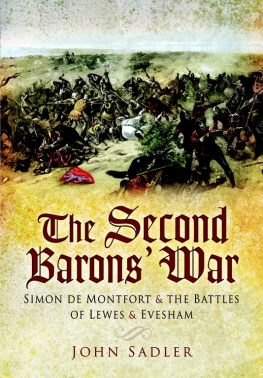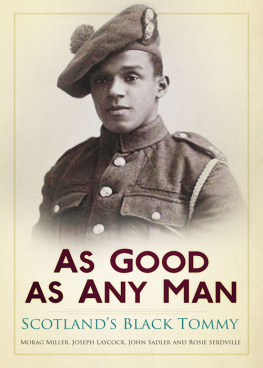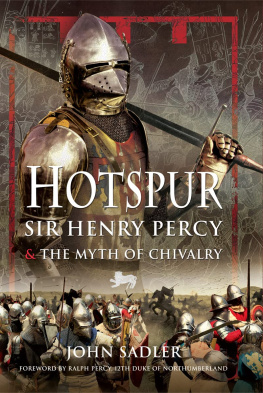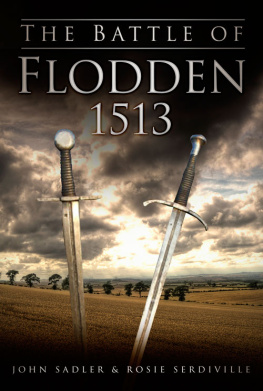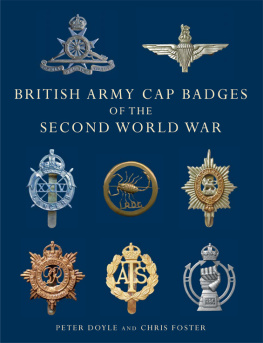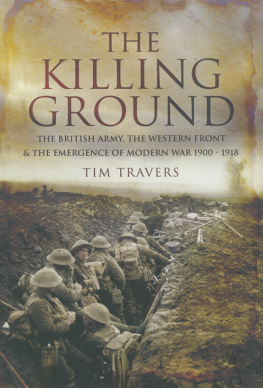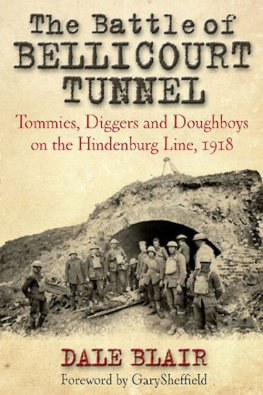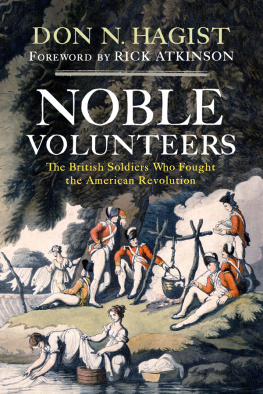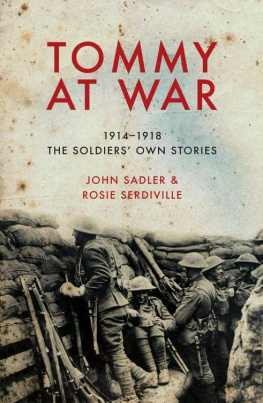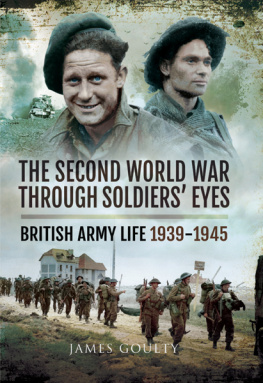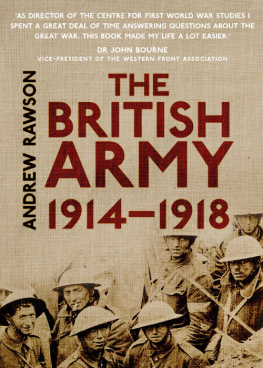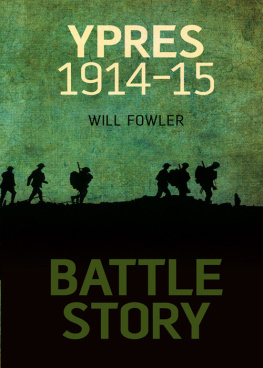This one is for all of them who have no known grave
Published in Great Britain and
the United States of America in 2017 by
CASEMATE PUBLISHERS
The Old Music Hall, 106108 Cowley Road, Oxford OX4 1JE, UK and
1950 Lawrence Road, Havertown, PA 19083, USA
Casemate Publishers 2017
Paperback Edition: ISBN 978-1-61200-484-6
Digital Edition: ISBN 978-1-61200-485-3
Mobi Edition: ISBN 978-1-61200-485-3
All rights reserved. No part of this book may be reproduced or transmitted in any form or by any means, electronic or mechanical including photocopying, recording or by any information storage and retrieval system, without permission from the publisher in writing.
A CIP record for this book is available from the British Library
Maps by Chloe Rodham
For a complete list of Casemate titles, please contact:
CASEMATE PUBLISHERS (UK)
Telephone (01865) 241249
Email:
www.casematepublishers.co.uk
CASEMATE PUBLISHERS (US)
Telephone (610) 853-9131
Fax (610) 853-9146
Email:
www.casematepublishers.com
Yes, makin mock o uniforms that guard you while you sleep Is cheaper than them uniforms, an theyre starvation cheap. An hustlin drunken soldiers when theyre goin large a bit Is five times better business than paradin in full kit. Then its Tommy this, an Tommy that, an Tommy, ows yer soul? But its Thin red line of eroes when the drums begin to roll The drums begin to roll, my boys, the drums begin to roll, O its Thin red line of eroes, when the drums begin to roll.
Rudyard Kipling, Tommy Atkins
INTRODUCTION
WHEN THE DRUMS BEGIN TO ROLL
As sure as Gods in his heaven,
As sure as he stands for right,
As sure as the Hun this wrong hath done,
So surely we win this fight!
John Oxenham, Victory Day Anticipation
O N THE SULTRY AFTERNOON OF 28 J UNE 1914, an eighteen-year-old tubercular terrorist shot Archduke Franz Ferdinand and his wife outside a pavement cafe in the Bosnian city of Sarajevo. Few in Britain at that time had heard of the Duke, the city or the province and, for the most part, cared rather less; just another Balkan do. It wasnt. This was the spark that lit the world; that blew the fuse that consumed the great empires and dynasties of Europe. Austria-Hungary, Germany, Russia and Turkey would be blown clear away. Britain was swept up in a tidal wave of righteous sentiment. The beastly Hun had to be stopped and gallant little Belgium restored. No other nation sustained its initial war effort entirely with volunteers. The posters let every man know what path duty demanded he take.
A call to arms
In that final, glorious summer of peace when it seemed the Empire was at its height and the King Emperor firmly on the throne, Britain stood tall as the worlds only global superpower. Her navy had ruled the waves for over a century since Trafalgar. Atlases of the day showed significant tracts of the globe shaded in red. As an instrument of imperial policy, beside the Navy, stood Tommy Atkins, the private soldier. Generally he was not well liked though, as the Kipling poem suggests, he would be lauded and cheered as he went off to die for king and country. When and if he came back he was became invisible. This contemptuous view of redcoats didnt begin to change until the Crimean War (185456). Technology, in the form of the wireless telegraph, early battlefield photography and what would now be termed embedded journalists meant Victorians in their comfortable parlours could fully witness all the horrors troops were suffering in the bleak Russian winter. Their privations were caused far more by supply and procurement failures than enemy action. Tommy won all his battles but froze thanks to the failures of the commissariat. Change was demanded; soldiers needed better care, decent accommodation and education. Change was, however, slow.
One of Marlboroughs footsloggers toiling on the road to Blenheim in 1704 might have had little or no difficulty in recognising his great-grandson marching in the rain towards the ridge of Mont St. Jean under Wellington over a century later. Both wore the famous red coat. They marched or rode as armies had through distant centuries. They wheeled and drilled, delivered their platoon volleys in a very similar manner. Both carried a smoothbore flintlock musket that might just kill their man at fifty yards. Wellingtons infantryman might have had far greater difficulty in recognising his own great-grandson, trudging along the hot pav towards Mons in 1914. Tommy was clad in stiff khaki. He carried the SMLE bolt action repeating rifle, deadly at a dozen times the distance of its predecessor. Much of his travel was undertaken by rail and the ubiquitous tin meant he could fight all year round and still be fed. None of this promised an easier life. Indeed his would very likely be harder, more terrifying and very much shorter.
The war had been a long time brewing. Seeds of conflict had been sown over forty years before when Prussia, burgeoning into a united Germany, trampled France, humiliatingly, unexpectedly and comprehensively, relieved her of both Alsace and Lorraine. Desire for revenge, La Revanche , burned fiercely in the breast of every Frenchman. In the course of those four decades, Imperial Germany which had come late to the idea of nationalism and the scramble for empire blossomed and boomed. Her industry came to rival that of Britain. Once the canny touch of the ageing Bismarck had been prised free, Kaiser Wilhelm II and his generation of gilded hawks, flushed with power and might, steamed headlong into fresh confrontation and hostility with Austria was forgotten as France and Russia drew together. This was ominous; a war on two fronts, east and west, was not to Germanys advantage.

The Short Magazine Lee Enfield (SMLE) was the standard British service rifle of the era: called short because the barrel length was less than the earlier Long Lee-Enfield which did service in the Boer War and still armed many territorial units in 1914. The SMLE was intended both for cavalry and infantry, firing 10 rounds of .303 ball cartridge. The weapon reached its final pre-war variant, the Mark III, in 1907 and confounded its critics, doing good service throughout the conflict and, depending on circumstances, for decades afterwards.

If Germany had to fight on both flanks, she must deal swiftly with one opponent to then concentrate upon the other. Russia was the larger demon, with potential armies of millions. Count von Schlieffen gave his name to a strategic plan which proposed an immediate knockout blow in the west to deal swiftly with France before concentrating upon Russia, perceived as far slower to mobilise. Russia was industrialising fast. The German General Staff feared that, by 1917, her capacity would have expanded so prodigiously as to remove any prospect of victory. The whole European polity, by summer 1914 was a tinderbox, requiring only a single spark.


